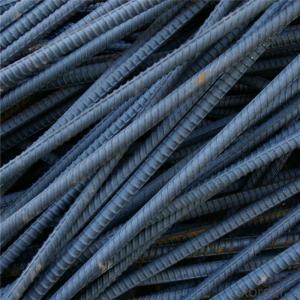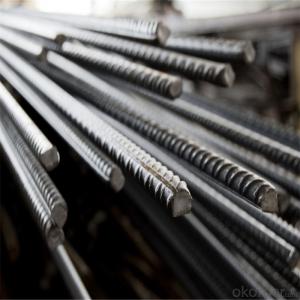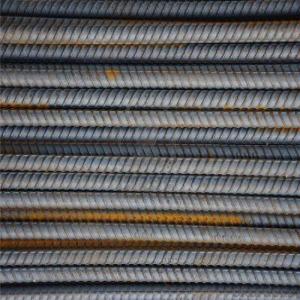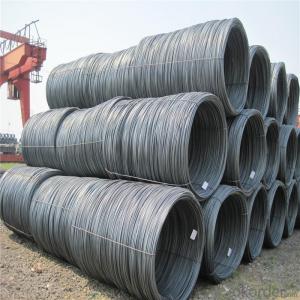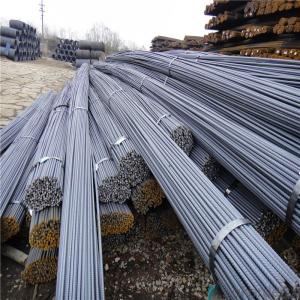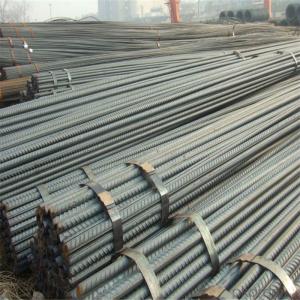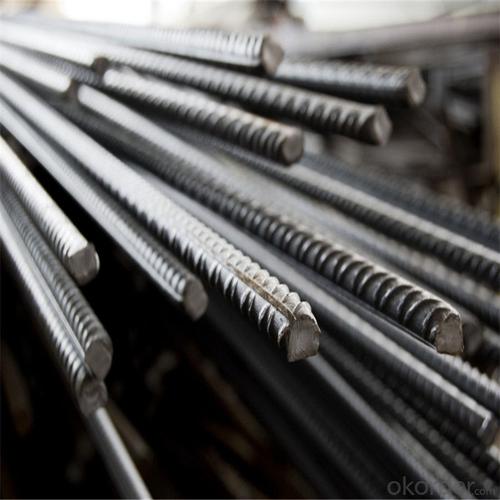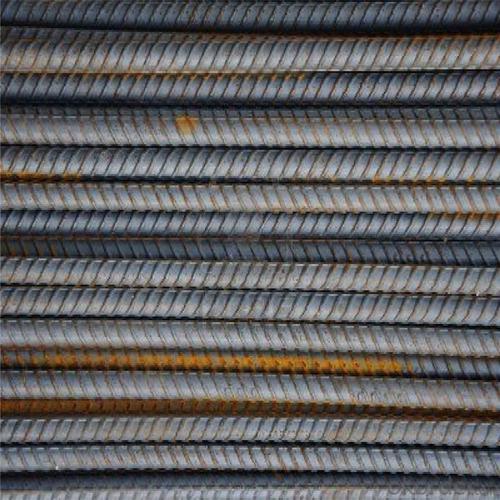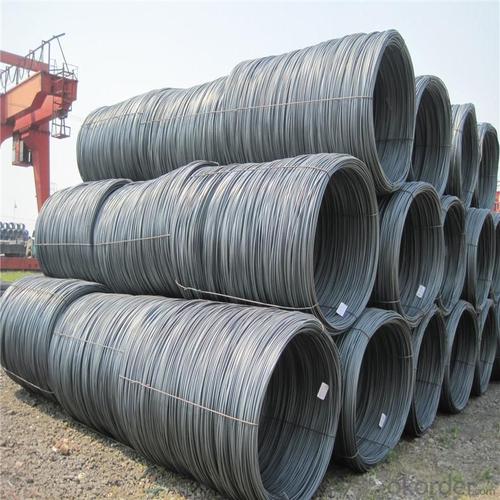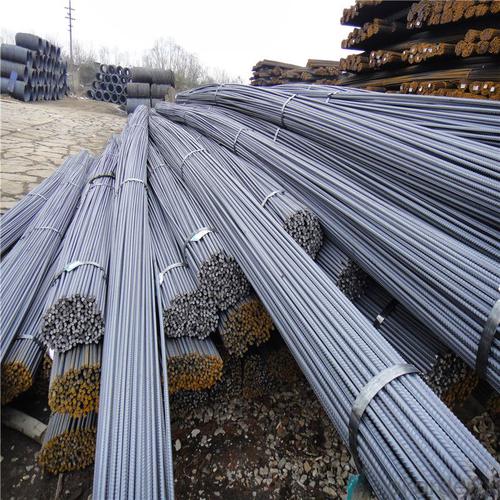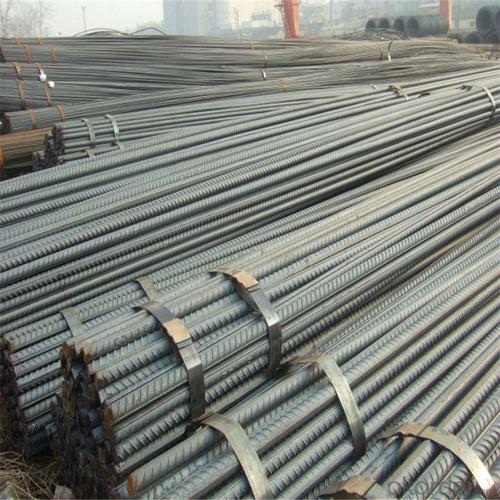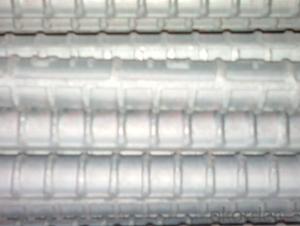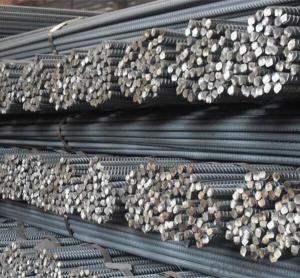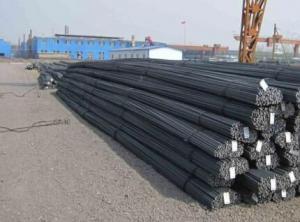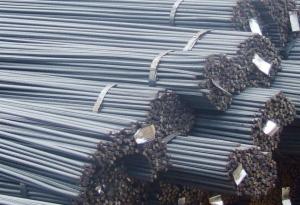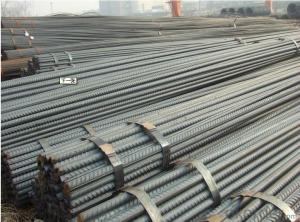Astm 615 Gr40 Gr60 Deformed Steel Rebars
- Loading Port:
- Tianjin
- Payment Terms:
- TT OR LC
- Min Order Qty:
- 200 m.t.
- Supply Capability:
- 500000 m.t./month
OKorder Service Pledge
OKorder Financial Service
You Might Also Like
Specification
Astm 615 Gr40 Gr60 Deformed Steel Rebars
Description of Astm 615 Deformed Steel Rebars
1, Diameter: 5.5mm-10mm Astm 615 Deformed Steel Rebars
10m- 40mm Astm 615 Deformed Steel Rebars
2, Length: 6m, 9m, 12m or customized
3, Standard: GB, ASTM, AISI, SAE, DIN, JIS, EN
OEM technology - send detailed technical parameters for accurate quotation.
2, Produce Process: smelt iron - EAF smelt billet - ESR smelt billet -
hot rolled or forged to get the steel round bar and plate
3, Heat Treatment: annealing, normalizing, tempering, quenching
4, Surface Treatment: Black
5, Quality Assurance: We accept third party inspection for all orders.
You can ask testing organizations such as SGS, BV, etc. to test our products before shipping.
Chemical Composition of Astm 615 Deformed Steel Rebars
Grade | Technical data of the original chemical composition(%) | |||||
Reinforcing steel bar HRB335 | C | Mn | Si | S | P | B |
≤0.25 | ≤1.60 | ≤0.80 | ≤0.045 | ≤0.045 | >0.0008 | |
Physics Capability | ||||||
Yield Strength(N/cm2) | Tensile Strength(N/cm2) | Elongation(%) | ||||
≥ 335 | ≥490 | ≥16 | ||||
Reinforcing steel bar HRB400 | C | Mn | Si | S | P | B |
≤0.25 | ≤0.16 | ≤0.80 | ≤0.045 | ≤0.045 | 0.04-0.12 | |
Physics Capability | ||||||
Yield Strength(N/cm2) | Tensile Strength(N/cm2) | Elongation(%) | ||||
≥ 400 | ≥ 570 | ≥ 14 | ||||
Products Show of Astm 615 Deformed Steel Rebars
Company Information
CNBM International Corporation is the most important trading platform of CNBM group.
Whith its advantages, CNBM International are mainly concentrate on Cement, Glass, Iron and Steel, Ceramics industries and devotes herself for supplying high qulity series of refractories as well as technical consultancies and logistics solutions.


F A Q
1, Your advantages?
professional products inquiry, products knowledge train (for agents), smooth goods delivery, excellent customer solution proposale
2, Test & Certificate?
SGS test is available, customer inspection before shipping is welcome, third party inspection is no problem
3, Factory or Trading Company?
CNBM is a trading company but we have so many protocol factories and CNBM works as a trading department of these factories. Also CNBM is the holding company of many factories.
4, Payment Terms?
30% TT as deposit and 70% before delivery.
Irrevocable L/C at sight.
5, Trading Terms?
EXW, FOB, CIF, FFR, CNF
6, After-sale Service?
CNBM provides the services and support you need for every step of our cooperation. We're the business partner you can trust.
For any problem, please kindly contact us at any your convenient time.
We'll reply you in our first priority within 24 hours.
- Q: What are the different methods of testing special steel for quality assurance?
- To ensure quality assurance, special steel undergoes testing using various methods. These methods are as follows: 1. Chemical Analysis: The composition of the steel is determined by analyzing its chemical elements and their respective quantities. This analysis ensures that the steel meets the specified requirements and is free from impurities. 2. Mechanical Testing: The strength, hardness, and other mechanical properties of the steel are assessed through mechanical testing. Tensile tests, hardness tests, impact tests, and fatigue tests are commonly performed to evaluate the steel's performance under different conditions and ensure it meets the required standards. 3. Non-Destructive Testing (NDT): NDT techniques are utilized to detect any surface or internal defects in the steel without causing damage. Magnetic particle testing, ultrasonic testing, radiographic testing, and dye penetrant testing are commonly employed methods for NDT. These tests are crucial in identifying flaws that may compromise the steel's structural integrity. 4. Metallurgical Analysis: The quality of the steel is assessed through microscopic examination of its microstructure. This analysis helps identify grain size variations, inclusions, or phase transformations that might affect the steel's performance. Metallography, optical microscopy, and electron microscopy are commonly used techniques for metallurgical analysis. 5. Corrosion Testing: Considering that special steel is often exposed to harsh environments, corrosion resistance is a critical quality parameter. Corrosion testing evaluates the steel's resistance to corrosion in various conditions. Salt spray testing, electrochemical testing, and exposure to corrosive environments are some methods used for corrosion testing. 6. Dimensional Inspection: Dimensional inspection ensures that the special steel meets the specified dimensional requirements. This involves measuring the steel's dimensions, including length, width, thickness, and other critical dimensions, using calibrated instruments. By employing these diverse methods, manufacturers can conduct thorough testing of special steel to ensure it meets the required quality standards. This comprehensive testing guarantees the steel's performance, durability, and reliability in various applications.
- Q: How does special steel enhance the performance of cutting tools?
- Special steel brings about various enhancements to the performance of cutting tools. To begin with, special steel is specifically designed to possess greater hardness and wear resistance in comparison to standard steel. This heightened hardness ensures that cutting tools retain their sharpness for extended periods, resulting in improved cutting efficiency and accuracy. Furthermore, the exceptional wear resistance of special steel guarantees that the cutting edges of the tools do not wear down quickly, allowing them to endure the substantial forces and pressures involved in cutting operations. Moreover, special steel often exhibits superior toughness and strength when compared to regular steel. This augmented toughness enables cutting tools to endure impacts and vibrations without succumbing to breakage or chipping, thus ensuring their durability and longevity. Additionally, the increased strength of special steel empowers cutting tools to handle higher cutting speeds and feed rates, ultimately enhancing productivity and reducing machining time. Special steel also boasts excellent heat resistance properties, which are crucial for cutting tools subjected to elevated temperatures during machining processes. This heat resistance prevents the cutting edges from softening or deforming, circumstances that could lead to subpar cutting performance and reduced tool lifespan. Additionally, special steels can possess improved corrosion resistance, effectively shielding the tools from rust or corrosion caused by exposure to moisture or aggressive cutting fluids. In conclusion, the distinctive properties of special steel, including heightened hardness, wear resistance, toughness, strength, heat resistance, and corrosion resistance, all work together to enhance the performance of cutting tools. These characteristics enable cutting tools to maintain their sharpness, withstand high forces and temperatures, resist wear and corrosion, and ultimately improve cutting efficiency, accuracy, and tool lifespan.
- Q: How does special steel perform in terms of corrosion resistance in marine environments?
- Special steel alloys, specifically designed for marine environments, exhibit excellent corrosion resistance. Due to their higher levels of alloying elements like chromium, nickel, and molybdenum, these steels form a protective oxide layer that prevents rusting and pitting, even when exposed to saltwater and other harsh marine conditions. Their exceptional corrosion resistance ensures prolonged durability, reduced maintenance, and enhanced performance in marine environments.
- Q: How is special steel used in the production of precision tools?
- Special steel is used in the production of precision tools due to its unique properties such as high strength, durability, and resistance to corrosion. This steel is carefully engineered and manufactured to meet specific requirements, enabling the production of precise and reliable tools. The use of special steel in precision tool manufacturing ensures that these tools can withstand heavy usage, maintain their sharpness, and provide accurate results, making them crucial for various industries such as automotive, aerospace, and engineering.
- Q: What are the common challenges in heat treating titanium alloys?
- Some common challenges in heat treating titanium alloys include the high reactivity of titanium with oxygen and other elements, the need for precise temperature control due to the narrow range of heat treatments, and the potential for distortion or warping of the material during the heat treatment process.
- Q: What are the requirements for special steel used in automotive parts manufacturing?
- The requirements for special steel used in automotive parts manufacturing are specific and crucial to ensure superior performance, safety, and durability of the vehicles. Here are some of the key requirements for special steel used in automotive parts manufacturing: 1. Strength and Hardness: Special steel used in automotive parts needs to have high strength and hardness to withstand the extreme stresses and loads that automotive components experience. This ensures the parts can endure heavy usage, resist deformation, and prevent failure under demanding conditions. 2. Ductility and Toughness: While being strong and hard, special steel must also possess good ductility and toughness. Ductility allows the steel to be formed and shaped into various intricate automotive parts, while toughness ensures that the parts can absorb energy and resist fracture or cracking upon impact. 3. Corrosion Resistance: Automotive parts are constantly exposed to various environmental conditions, including moisture, humidity, and road salts. Special steel used in automotive parts must exhibit excellent corrosion resistance to prevent rust and deterioration, thereby increasing the longevity and reliability of the parts. 4. Weldability: As automotive parts are often assembled through welding processes, it is essential for special steel to have good weldability. This allows for efficient and secure joining of different components, ensuring structural integrity and minimizing the risk of weld defects. 5. Heat Resistance: Special steel used in automotive parts manufacturing should have sufficient heat resistance to withstand high temperatures generated during engine operation, friction, or other thermal processes. This ensures that the steel maintains its mechanical properties even under extreme heat conditions, preventing premature failure or deformation. 6. Fatigue Strength: Automotive parts are subjected to repeated loading and unloading cycles, leading to fatigue failure if the steel does not have adequate fatigue strength. Special steel should possess high fatigue strength to withstand cyclic loading and resist fatigue cracks, enhancing the durability and reliability of the parts. 7. Dimensional Stability: Automotive parts need to maintain their shape and dimensions over time to ensure proper fit and functionality. Special steel used in manufacturing should exhibit dimensional stability, minimizing any warping or distortion during heat treatment or operational conditions. 8. Cost-effectiveness: While meeting the above requirements, special steel should also be cost-effective for automotive parts manufacturing. This means that the steel should be reasonably priced, readily available, and offer a good balance between cost and performance. Meeting these requirements is crucial for manufacturers to produce high-quality automotive parts that meet industry standards, perform optimally, and contribute to the overall safety and performance of vehicles.
- Q: What are the properties of corrosion-resistant stainless steel?
- Corrosion-resistant stainless steel possesses a unique combination of properties that make it highly resistant to corrosion. These properties include a high level of chromium content, which forms a protective oxide layer on the surface of the steel, preventing further corrosion. Additionally, it has low carbon content, which further enhances its corrosion resistance. The presence of other alloying elements like nickel and molybdenum also contributes to its resistance against corrosion in various environments, making it suitable for a wide range of applications.
- Q: How does special steel compare to other materials like aluminum or titanium?
- Special steel is known for its exceptional strength, durability, and resistance to corrosion, making it a popular choice for various applications. Compared to materials like aluminum or titanium, special steel often offers superior strength and toughness, making it suitable for heavy-duty industries such as construction, automotive, and aerospace. While aluminum is lightweight and has good corrosion resistance, it may lack the necessary strength for certain demanding applications. Titanium, on the other hand, is lightweight and possesses excellent strength-to-weight ratio, but it is more expensive and difficult to process than special steel. Ultimately, the choice between special steel, aluminum, or titanium depends on the specific requirements of the application at hand.
- Q: What are the different surface treatments applied to special steel?
- The different surface treatments applied to special steel include galvanizing, electroplating, powder coating, painting, passivation, nitriding, and heat treatment. These treatments are used to enhance the corrosion resistance, hardness, and aesthetics of the steel, depending on the specific application requirements.
- Q: Can special steel be used in the defense industry?
- Yes, special steel can be used in the defense industry. Special steel, such as high-strength steel or armor-grade steel, possesses unique properties that make it suitable for various defense applications. It can be used for manufacturing military vehicles, aircraft components, body armor, ballistic plates, and other defense equipment that require enhanced strength, durability, and resistance to extreme conditions. Special steel's ability to withstand impacts, provide protection against projectiles, and maintain structural integrity makes it an essential material in the defense industry.
Send your message to us
Astm 615 Gr40 Gr60 Deformed Steel Rebars
- Loading Port:
- Tianjin
- Payment Terms:
- TT OR LC
- Min Order Qty:
- 200 m.t.
- Supply Capability:
- 500000 m.t./month
OKorder Service Pledge
OKorder Financial Service
Similar products
Hot products
Hot Searches
Related keywords
